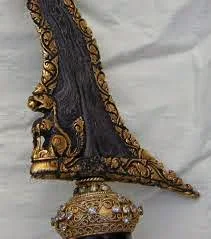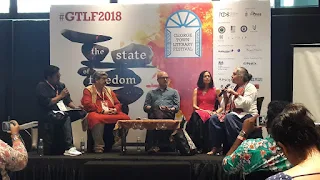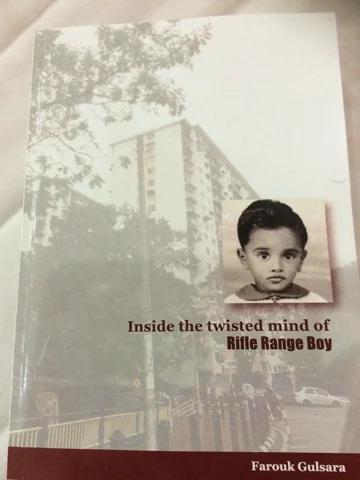What Your Teacher Didn't Tell You
The Annexe Lectures (Volume 1) by Farish A Noor
You would become depressed after reading this book. Sad because it shows the doom and gloom that we are heading to. All the grooming after the independence by the legacy left by the colonialist masters, though they were no angels and are partly to be blamed for the rut, the head start that that we were heading for have slowly taken a nosedive. The author of the book joined the drove of band of intelligentsia who decided to migrate down south where the grey matter mattered. Looks like we have to contend with our motley crew of runaway maids, conniving dual citizenship 'one foot here and one foot there' flight by night bogus citizens and mediocre yeomen to make up the numbers in the country.
This book is also a gloomy reminder of our wonderful teachers whom we had before who could cajole us to drown in the sea of knowledge with their excellent mode of storytelling.
The lectures, 5 of them, covers matters of present relevance. He tries to look at these matters from a historical perspective and put forward his argument of history that had been brutally butchered by the powers that be to push their own personal agenda. There has also been selective erasure of facts to alter the origin of our cultures and practices.
 |
| Kris with its Hindu-Buddhist influence |
The first lecture narrates the origin of our revered national pride, the Kris. The Kris has been portrayed as an emblem of Malayness and has been donning flags and coat of armour of organisations to show off their Malayness. Ironically, Kris is the beholden of past history of the region of a time where multiculturalism and harmony was the order of the day. Kris had its origin at a time when Hindu-Buddhist empires were ruling this region. It was actually part of what historians would call 'Greater India'. Kris is even found in Cambodia. India exerted its influence, religion and cultures to this area. Kris had probably originated in Java. Even Hang Tuah had obtained his legendary Taming Sari after pacifying an amok Javanese. At different times, input was given by various empires. The Hindu-Buddhist motifs were carved. Chinese and Japanese craftsmen had also put in their input when kris was given as souvenirs to other kingdoms. At the end day, the kris is actually an emblem of a time when our region was a melting pot of cultures and tolerance. Somehow, the conniving politicians have hijacked the kris to denote the heights of Malay supremacy!

The second lecture reminds us of the racial baggage that our colonial masters have left for us to wrestle. Even though ethnic variations were there all through history in Malaya, the indiscriminate migration of labourers by the colonists made ethnic differences more apparent. We are also talking about a time when the world was toying the idea of superiority of the Caucasian race over the others. The lesser races were considered inferior and were thought to eventually die off once the European influence sweep through the world (like the Red Indians)! Segregation of the races and creating animosity amongst themselves and pacifying them gave the visitors a convoluted way to garner profit to the Empire. This trend continued when the helm of government was handed over to the elitists friendly to the British and the tested formula of 'divide and rule' continues to date.

Next, he tackles the culture of '
ampu bodek' which is ingrained in our DNA. It actually goes back way back to time of Majapahit and beyond. The kings who ruled the land invoked the fear of God in their subject. The ruling elite had special privileges and were thought to be envoys of God on Earth. Example of this type of King would King Suryavarman II for whom the people would die to build his mammoth erection so that his soul would forever lie in peace while they shred themselves into pulp doing it. This type of God complex way of administration prevailed through the Sultanates and now the Government hierarchy. Anyway, the mould of our Government today was made by another representative of the local Monarchy, Tunku Abdul Rahman. Apparently, this method of administration which is still the prototype today has no demarcation between the Government and party coffers. The ruling elite feels that they are the 'chosen ones' and has the birthright to rule the country.

The fourth lecture laughs at our present day policing and capping of our sexual desires, orientation and preferences. He goes to a time in our history at the turn of 1st century when this part of the region was influenced by the Tantric and Shivaites' beliefs in sexual energy and harmony with nature. At a time when Man was awed by happenings around him, he correlated sex, orgasm and procreation to a universal energy which was precursor of life. An Italian writer (Pigafetta) who accompanied Magellan in his round the world trip, documented natives' fixation with eroticism and the thought of attaining protracted eroticism as a means to control their energy. The had mutilated their genital organs to this end.
From the various scriptures, stories and dance found in this area, our society appreciated and accepted the presence of LGBT in the community. Hikayat Panji Semirang Asmarantaka is our tale of transgendered cross dressing hero/ine who developed sexual feelings for same gender directly or indirectly! From a sexually matured society, we have somehow transgressed in our thinking. We tend to blame LGBT and sexual liberty as some kind of corruption of from the West. In a sense, at a time when this region was Bohemian in their outlook in life, the Western world was rather conservatively Victorian!
Next, a bonus lecture on the oldest Malaysian political party which had its origin as a 'people's party'. Even though outwardly appearing as a hardcore ultra religious conservative far-right party now, its green flag has smudges of red paint splashed in its history. Starting as small party working within the confines of the law, unlike its counterpart in the Arab world where Islamist parties were firebrand and combative in nature. The principles that they seem to speaking in this century like human rights, democracy and equality are echoes of their early struggle. They were 'people party' with links with the members of resistance force against the Japanese and the colonial rule. With socially awkward sounding names like PIMP and PIS, Partai Islam SeMalaysia decided on the abbreviation PAS. Its destiny took a turn when a forward thinking homeopathic doctor and philosopher took the helm of President, Dr Baharuddin Helmy. In fact, after the exodus of Japanese from Malaya in 1945, if the British had not returned, Dr Baharuddin would have been the Prime Minister.

Unlike the present brand of leaders in PAS, leaders then were receptive to advancement of the country collectively rather than harping on establishing an Islamic state. They had people on their mind. Even though their ideology was not in sync with that of Communist Party, they cooperated with them for the sake of the welfare of the common people. Dr Baharuddin and his friends in the resistance force had unification of individuals on their mind even as talks of Malayan Independence was ongoing. Their liaison with CPM and the establishment of Nusantara placed them in the bad light in the eyes of the British controlled and the elitist pro-British apple polishers who eventually became the ruling party put them in a bad light. They had their media and all the wealth of information under their thumb to come out smelling of roses every time.
Dr Baharuddin was the first Malay leader to be incarcerated under ISA. Confrontation and the escape of some of his contemporaries to Indonesia and the ensuing Sokerno's desire to usurp Malaya during this time further established UMNO and the Alliance as saviours of the nation.
PAS under the leadership of Dr Burhanuddin can reminisce a time of intellect discourse between religious and philosophical figures of the region of highest standard. Everything was not skewed from the narrow angle of religion but from a humanistic angle. They had shed the image of village holy-men to be progressive and democratic. He and many of the leaders of the Third World that time who were fighting against the tyranny of the imperialist incurred the wrath of the powers that be and all met the same path into oblivion.
His support of anti imperialist stance of Sukarno and the ugly Confrontation managed to paint a negative picture of the party with a lot of help from the ruling party's (dubbed imperialist's stooge) control of the media.

In the final chapter, the author gives a refreshing new
perspective of the all-Malay hero, Hang Tuah. The history that was taught to us and the feeding of the media to us had convinced us that HT is the epitome of Malayness. With statues and portraits of him, clutching on the hilt of his
Taming Sari with the captions '
Tak kan hilang Melayu di dunia', one can be forgiven for not thinking otherwise.
The author suggests the epic of HT compiled under the title of '
Hikayat Hang Tuah' is a collection of stories written by different authors and different times. Roughly the story that we are exposed to is the first part where HT is depicted as a law abiding king worshipping warrior who would have no qualms of killing his dear friend without thinking, like a Robocop. On this most films and history lessons are based.
However, the second part of '
Hikayat Hang Tuah' paints a totally different picture of this admiral. Here, he is an ambassador of the Malacca Sultan to
Negara Keling (South India) because he is well conversant in '
bahasa keling'.
He impresses the Indian Emperor with his finesse and keenness to learn the language, religion and cultures. In fact, the Indian Emperor appoints him as
Negara Keling's ambassador to China!
In the narration of HT's experience in China, we are told that HT was well versed with Chinese culture as his stepfather was Chinese! During the visits to both countries, he was friendly to all except to the
ferringhis (white travellers). HT and his entourage had no reservations about representing either country and did not feel disloyal to Malacca.
It is interesting how a historical figure who was ever embracing of all cultures is painted by people with a vested interest as a firebrand warrior representing a particular race and their defender.
After his successful tours of duty to India and China, HT was sent to the Kingdom of Ayyuthia to procure elephants and to Constantinople of the Ottoman Empire to obtain gunpowder. En route to Constantinople/Istanbul/Setambul, he is said to have performed his pilgrimage in Mecca.
Again with his wit and charm, HT captivated all quarters.
Upon his return, HT took retirement by retreating to the foothills for meditation as he aged. It is said that he gave up violence to explore the real meaning of life.

Incidentally the legacy of draws parallelism to a Farsi poem,
Iskandarnameh, wrote by a Nizami Ganjavi about a fabled Farsi conquerer named Iskandar Dzulkarnain, the son of King Darius II. (But I always thought Iskandar Dzulkarnain was Alexander the Great) The hero in the poem too had a two parts to his life history. The first where he is a fearsome conqueror and the second where he renounced violence to find the real meaning of life.
The author ends his lecture by suggesting that perhaps the phrase '
Tak kan hilang Melayu di dunia' should infer to the meaning that Malays would not be lost (hilang) in the world as the they world-savvy, so to speak. Just look at HT who could go places, mingle with the royalties of various kingdom and come back victorious in his missions.
Sound a bit like MGR's 'Ulagam Sutrum Vaaliban' where MGR is an undercover cop working in tandem with Interpol, going places to nab international smuggler. With so much ease, MGR will get a girl at each post to sing his duet!!!
(Dedicated to Mr Lee Kok Keng, my favourite history teacher)

.jpeg)



_10111037_1673873673447.jpeg)






























